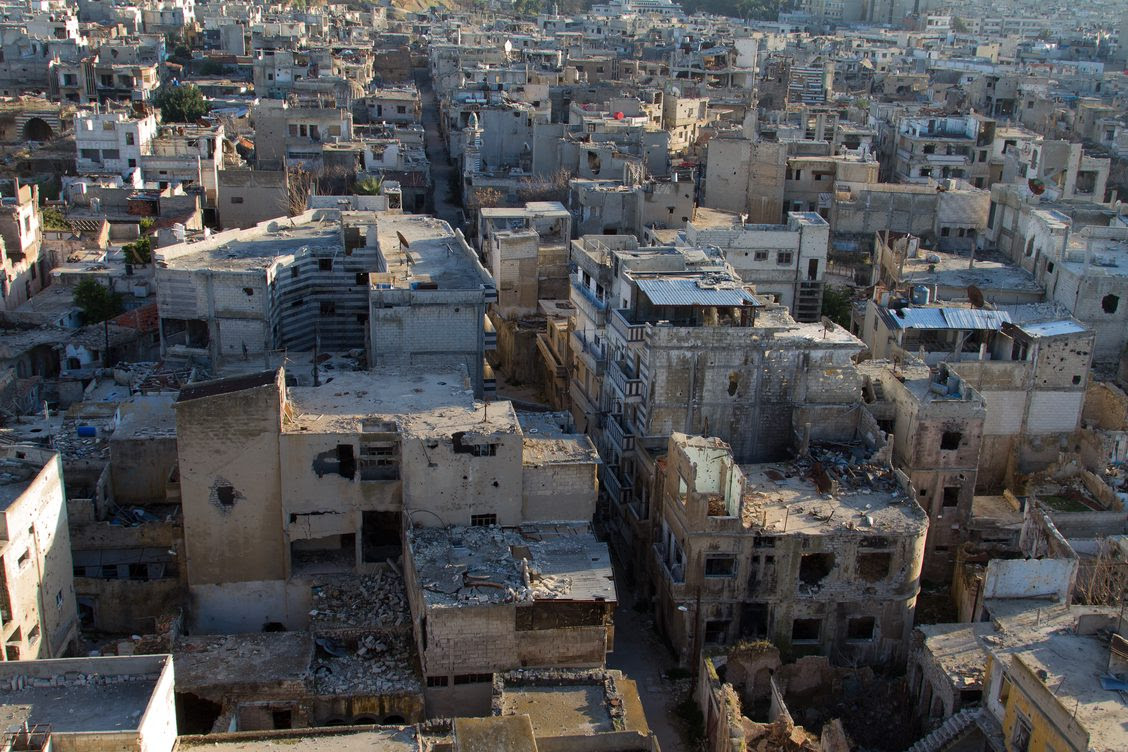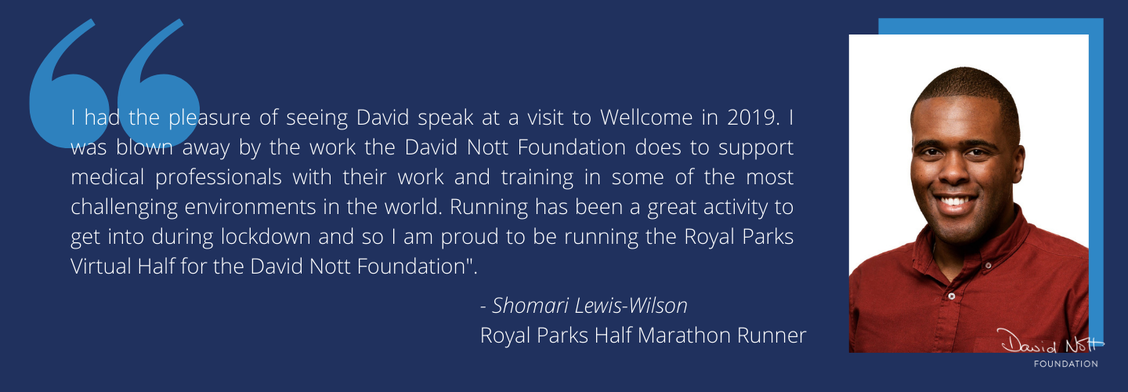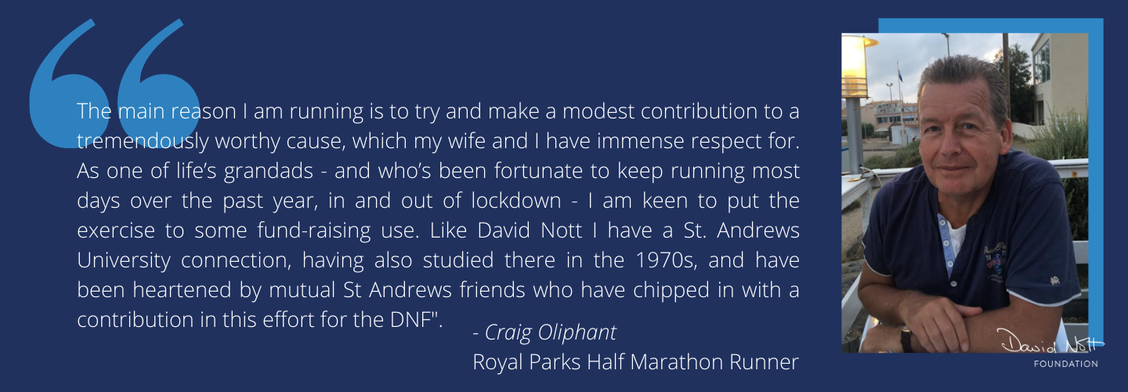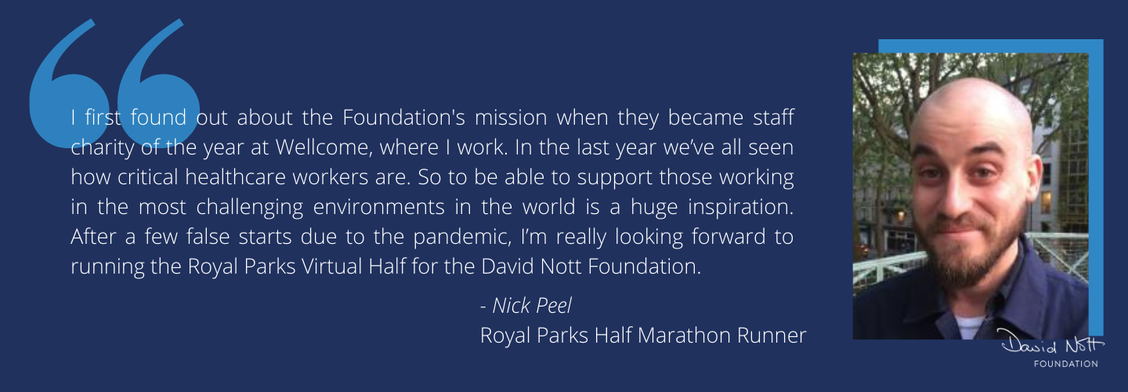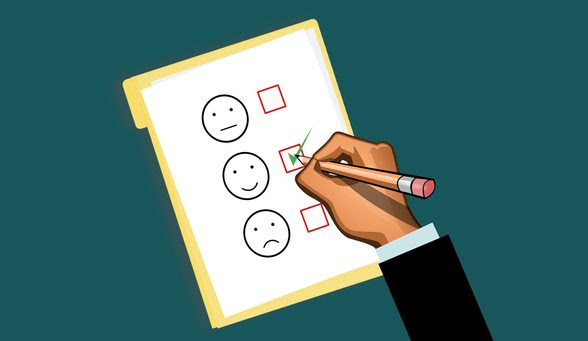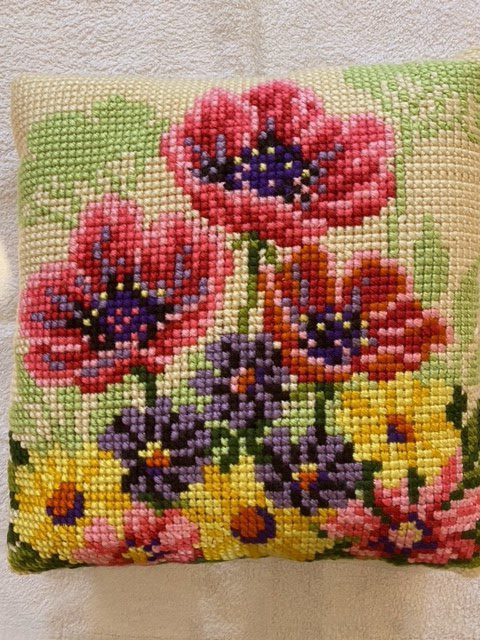April 2021 Newsletter: 10 Years of Conflict in Syria

10 Years of Conflict in Syria
Welcome to the David Nott Foundation’s April update. To those observing, we hope that you had a restful Easter and were able to come together with loved ones to celebrate. Today, we at the Foundation have been profoundly saddened by the new that His Royal Highness The Prince Philip has passed away. We wish to express our deepest condolences to Her Majesty The Queen, and the Royal Family. It has now been ten years since the civil war erupted in Syria. The price paid over the last terrible decade by Syrian civilians is incalculable, and millions still reside in vulnerable, crowded camps. Children have lost schools, friends and family members. So many thousands have lost their homes, businesses and loved ones. Hospitals, deliberately targeted by the Syrian regime now struggle to cope with the COVID-19 pandemic. As a show of solidarity with the Syrian people, the David Nott Foundation dedicated our social media accounts to small NGOs, individuals, civilians, humanitarians and journalists who have lived experience of the civil war. We hoped to provide a platform through which to amplify these voices. We encourage you to look back through our Tweets and Re-Tweets (@NottFoundation) to read first-hand accounts of the atrocities and reflect on the profound loss that we all feel after ten years of conflict. The David Nott Foundation has taken our HEST® course to Syrian surgeons before, and plans to again soon. You can view an interactive map of where we have taken our training course by visiting the ‘Overseas Course’ section of our website. Good luck to our RPHM RunnersWhile we’re on the subject of challenge running events, the Foundation would like to wish good luck to our Royal Parks Virtual Half Marathon runners for the 11th of April. We asked some of those competing to raise money for the DNF what inspired them to do so:
|
||||||||||||||||||||||||
War Doctor Heroes: Meet Dr Marah
Dr Marah, a medical student from Homs, Syria knows that no matter how young a physician is, they should always be updated with the best skills and practices.
The shortage of medical staff, surgical equipment and training programmes are significant barriers to quality healthcare in her region, and these problems are worsened by a poor socioeconomic situation.
After studying medicine for only two years, Marah assisted in a Mastectomy operation on a fifty-year-old woman. Owing to the anaesthetist’s lack of experience, the patient was not under good anaesthesia and experienced a great deal of pain during the procedure. Although Marah was very anxious, she looked after the patient and decided that surgery was what she wanted to do for the rest of her life.
In 2019, we invited Marah to attend our overseas HEST® course in Lebanon where she was taught how to perform many complex surgical procedures and was able to build up her confidence. She told us that the training course inspired her to “use every source of power I have to help the patients and that no matter how hard the situation is we should always remember that patients must be our first priority.”
Marah hopes her country finds peace soon and believes that by working together and supporting each other, her people can improve their future. We are confident that Marah will make a brilliant surgeon and we are proud to be supporting her on this journey.
War Doctor Heroes: Meet Dr Ayman
Meet Dr Mohammed Ayman, a Syrian vascular surgeon and our latest War Doctor Hero.
We first met Ayman back in 2013, when David Nott was volunteering in Alzarour Hospital, Aleppo. Whilst treating patients, David was able to teach Ayman and his team a variety of specialised surgical procedures that Ayman was later able to use to save casualties.

At this time, medical workers and facilities were a target. As Ayman put it, "the hospitals in Aleppo were a kind of magnet for attacks.”
It was too dangerous to go outside as barrel bombs and missiles could fall at any time so Dr Ayman and his colleagues had to work, sleep and eat in their underground hospital.
The heavy siege also meant resources were always in short supply. They lacked the right sutures to stitch up patients and there wasn’t enough food and milk to feed malnourished children. Nonetheless, Dr Ayman did what he could to take care of his patients. “All the Syrian people in Aleppo needed us, so we had to be stronger for them and we had to adapt to the new situation as best we could. We wanted them to always feel that they were not alone.”
One patient that Ayman especially remembers was an 11 month old baby girl. Her father carried her to the hospital after she was wounded in a bomb explosion. She had a severe leg wound and the orthopaedic surgeon wanted to perform an amputation. Fortunately, Dr Ayman knew there was a chance her leg could be saved. He successfully performed a vein bypass to restore the blood supply and later her leg was externally fixated so that the bone could heal properly.
To Ayman’s immense happiness, the little girl recently started walking.
Ayman is one of fourteen surgeons who will be joining us for our next UK-based training course. He hopes that the skills learnt on this course will enable him to better serve the Syrian people when he is able to return to his home country.
You can read about some of our other War Doctor Heroes by clicking here.
Yemen HEST® January 2020
The DNF team, in partnership with MSF Spain, recently returned from our latest mission to Yemen which brought in 31 surgeons from across the country for a specialised five-day training course. Since 2015, Yemen has been the stage of one of the world's worst humanitarian catastrophes. Hundreds of thousands of Yemeni citizens have already lost their lives, and as the fighting continues, many more are in need of urgent medical treatment and supplies. At the front-lines of this conflict are the surgeons and medics who face the challenge of saving lives without losing their own, all the while limited by a lack of resources and insufficient training.
Our Hostile Environment Surgical Training course (HEST®) was designed to confront this problem. Over the course of five days, our Faculty, comprising David Nott, Ammar Darwish, Pippa Letchworth, Pete Mathew and Rebekka Troller instructed surgeons on a wide range of trauma topics. By equipping these medics with the necessary knowledge, confidence and skills that they need to treat patients, we can improve the medical outcome for countless people.

The regions where HEST® is taught often rule out cadaveric teaching, so the Foundation’s whole body simulator, Heston®, was employed for training. This state of the art, bespoke simulator mimics the look and feel of real human flesh and features the full range of organs, blood vessels and key anatomies needed for facilitating learning.

Supporting Heston®, we also deployed our neonatal models and our new VR learning experience, which simulates a mass casualty event. This immersive experience focuses on the triage of ten patients using International Committee of the Red Cross categories: serious wounds, second priority, superficial wounds and severe wounds.

To date, the Foundation has trained 803 medics across 28 courses, benefiting an estimated 1.7 million patients. Through this global network of war doctors, we can raise the standard of medical care worldwide and continue to save more lives and limbs. To help us train even more surgeons, you can donate here.
War Doctor Heroes: Meet Dr Youssef
In this latest instalment of our #wardoctorheroes series, we're proud to introduce Dr Youssef Saab from Lebanon, a surgeon who works just 3km from the Syrian border.
We first met Youssef in 2018, when he attended our overseas HEST® course in Beirut. On this specialised surgical training course, Youssef learnt the importance of damage control when dealing with mass casualty incidents. Since then, he has implemented this procedure five times to great success, saving the lives of many patients. Inspired to join MSF, Dr Saab now sees between 50-60 patients each day in the Bekaa Valley refugee camp, close to the border.
Unfortunately, the majority of his patients are child refugees, who, having fled from war, now deal with chronic wounds and burns. As Youssef explained: "War is not just about the acute wounds. Wounds that have not been properly treated, which become infected or that fail to heal properly can be just as deadly."
Alongside these chronic wounds, electric shocks and hot water burns are also commonplace as conditions in the refugee camps remain hazardous, especially for young children.
Dr Youssef recently joined us on our London based STAE course, where he was able to enhance his knowledge across several key areas, including trauma obstetrics, plastic surgery and orthopaedics.
Our War Doctor Heroes series celebrates our global network of surgeons, working in some of the world’s most hostile and austere environments. Their selflessness and bravery inspires everything that the Foundation strives to achieve.
To help us train more surgeons like Youssef, you can donate here.
War Doctor Heroes: Meet Dr Samah
We are proud to introduce Dr Samah in the latest instalment of our War Doctor Heroes. These features share the stories of our global family of surgeons. Their courage, diligence and dedication inspires everything that the Foundation strives to achieve.
Dr Samah is the only female surgeon in Aden and possibly in all of Yemen. We first met this incredible doctor in 2016 when she completed our overseas training course (HEST®). Since then, she has come to be regarded as one of the very best and has consistently impressed our team with her dedication and diligence.
Earlier this year, Dr Samah was able to apply the skills learned on one of our courses in a life threatening situation. She carried out an emergency procedure whereby an incision of the skin of a patient is made to create a clear airway in a technique that is only performed as a last resort when intubation is impossible. Dr Samah told us: “I saved his life; it was great what I felt at that moment. It’s all thanks to Dr David and his Foundation.”
Her legacy is a reminder of the many extraordinary women who've been on the "front line" for years.
To help us train more war doctors like Dr Samah, you can donate here.
War Doctor Heroes: Meet Dr Aisha
War Doctor Heroes features the stories of our global family of surgeons. Their devotion to saving lives inspires us to keep moving forward. Conflict doesn't stop, neither do we.
In this feature, we're proud to introduce Dr Aisha from Libya. Dr Aisha travelled 1,000 miles to attend our HEST® course in Misrata, Libya. She is part of a small team of surgeons in Sabha, south west Libya. She is used to fighting to keep patients alive whilst shrapnel and bullets tear through her hospital building. “A single shot to an oxygen tube could have destroyed the whole theatre, where we were operating but we couldn’t stop – we felt we were making a difference”. After our course, Aisha said: “Your hands can do the work but you need someone to guide you”.
Help us train more war doctors like Aisha by donating here https://lght.ly/1jbkc1g
Syria HEST® July 2019
The team has recently returned from their latest mission to Syria. With 46 airstrikes occurring since April on healthcare facilities, the most dangerous place to be in Idlib is certainly a hospital. With many hospitals now out of action, millions of people have been left without access to healthcare facilities and doctors have been left to face the challenge of saving lives without losing their own.
In order to confront this problem and the worsening conditions of patients, the Foundation’s Hostile Environment Surgical Training (HEST®) Faculty comprising David Nott, Ammar Darwish and Mounir Hakimi recently delivered a HEST® course in the Dr Mohamad Wassim Maaz Hospital near Bab Al-Salameh on the Turkish-Syrian border. Their objective was to deliver the course to 24 surgeons and general practitioners from Idlib, in partnership with Syria Relief and the Independent Doctors Association, to improve their skills in emergency trauma surgery, with a specific focus on how to treat blast injuries and gunshot wounds.

Intensifying airstrikes and destruction are slowly forcing everybody towards Idlib city. The only defence they have is to be prepared. The HEST® course has aided this in equipping the surgeons and general practitioners with the skills necessary to tackle the increasingly life threatening injuries and rising population, allowing them to significantly improve the outcome for their patients.
The settings where HEST® is taught rule out cadaveric teaching, so the Foundation’s whole body simulator was employed for training. Now with its legs removable, enabling faster and cheaper transport, the impact that it made on the quality of training and the ease with which the Faculty could demonstrate anatomy and procedures was excellent. Supporting the simulator was a suite of individual models of organs, blood vessels and key anatomies with which the students could train. The Faculty also trialled two new commercially-sourced neonatal resuscitation models (Laerdal Medical’s NeoNatalie) and two new neurosurgery models (Delta Surgical’s Rowena), which were a great success.

The Foundation’s Faculty are experts in austere environment surgery and deliver tailored training to a globally recognised standard. With the course having been tailored to match the advanced level of the surgeons and general practitioners and the quality of interaction being excellent, the team came away confident with the exceptional impact that it will have on the victims of the conflict.
War Doctor Heroes: Meet Dr Omar
This is Omar. He is an orthopaedic surgeon in Iraq. He came on one of our surgical training courses in 2018.
We heard that, following a massive road traffic accident, a young patient was brought into his hospital with a compound hip fracture. He was losing so much blood that doctors were gravely concerned that he might not survive. Omar decided to perform a procedure he'd learnt to do properly on our training course.
He recently visited his patient and was delighted to see that he's doing really well. "You saved another life without even knowing it. We are so proud of you. I want people to know the real benefits of these training courses".
"The training helped me to do the procedure properly and without it the boy may not have lived" said Omar.
Help us train more surgeons like Omar https://lght.ly/1jbkc1g





